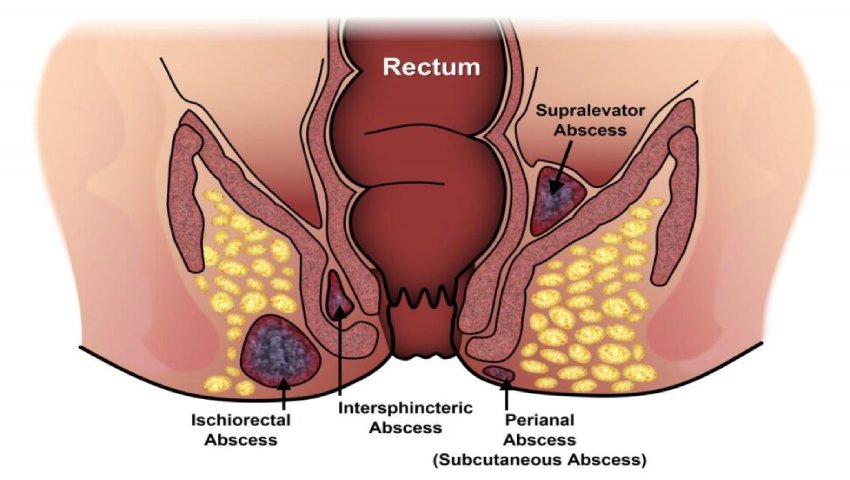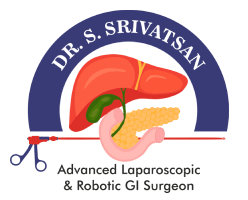
- 14/05/2025
- Dr. Srivatsan Gurumurthy
- 0 Comments
- Blog
Complex Fistula: What You Need to Know?
Anal fistulas can be painful and persistent, often becoming complex to treat. When a simple fistula becomes more complicated, specialised care is needed. Consulting an Expert Gastroenterologist in Mylapore, Chennai, Dr. Srivatsan Gurumurthy, can make a significant difference in managing the condition effectively. With advanced treatments and techniques like robotic surgery, Dr. Srivatsan offers the best possible care. Dr. Srivatsan works in association with GEM Hospital Chennai to provide personalised care and advanced treatment options. it may develop into a complex fistula, requiring specialized care.
What Is an Anal Fistula?
An anal fistula is a small tunnel that forms between the skin near the anus and the end of the bowel (anal canal). It usually develops after an anal abscess drains but doesn’t heal completely. Fistulas can be simple or complex, depending on their structure and relation to surrounding muscles.
Simple fistulas often respond well to minor surgery. But when deeper tissues are involved, the condition becomes more complicated.
What Makes a Fistula "Complex"?
A complex fistula typically has one or more of the following features, making it more challenging to treat:
- Involves a significant portion of the anal sphincter muscle: The anal sphincter controls bowel movements, and when a fistula affects this muscle, it increases the risk of incontinence and requires careful treatment to avoid damage.
- Has multiple tracts or openings: Some complex fistulas have more than one tract or opening, making the healing process more complicated and increasing the chances of recurrence.
- Recurs after previous surgeries: Fistulas that keep returning after surgery indicate a more resistant or complicated condition that may need advanced treatment methods.
- Is associated with Crohn’s disease or tuberculosis: Chronic inflammatory diseases like Crohn’s disease or tuberculosis can cause fistulas to form or persist, making them more complex and difficult to treat.
- Affects patients with poor healing capacity, like those with diabetes: Conditions that impair healing, such as diabetes, can make complex fistulas harder to treat and increase the risk of complications.
These fistulas are harder to treat and carry a higher risk of incontinence if not handled with precision.
Signs and Symptoms of Complex Fistulas:
The symptoms of a complex fistula are often similar to those of a simple one but tend to be more persistent or severe:
- Continuous or recurring discharge from the opening near the anus
- Pain, especially during sitting or passing stools
- Swelling or redness near the anal region
- Fever, if infection is present
- Foul-smelling pus or fluid from the tract
- Repeated episodes of abscess formation
These signs should not be ignored. Prompt medical evaluation is necessary.
Causes and Risk Factors:
The majority of anal fistulas result from an infected anal gland. The causes of a complex fistula, however, may be:
- Recurrent or unhealed abscesses: These can lead to complex fistulas if not properly treated.
- Chronic inflammatory bowel diseases: Conditions like Crohn’s disease cause inflammation, leading to fistulas.
- Radiation therapy: Radiation for pelvic cancers can damage tissue, increasing the risk of fistulas.
- Anal region trauma or surgery: Past injuries or surgeries may cause scarring, raising fistula risk.
- Tuberculosis: TB can affect the digestive tract, sometimes leading to fistulas.
- HIV infection: HIV weakens the immune system, making fistulas more likely.
Smoking, poor hygiene, and diabetes: These factors can worsen healing and contribute to chronic fistulas.
How Are Complex Fistulas Diagnosed?
Diagnosis starts with a physical examination by a colorectal specialist. Occasionally, the external opening can be seen, and probing gently can map the tract. But for more complicated fistulas, more sophisticated imaging is typically required:
- MRI Fistulogram: to have a clear image of the whole fistula course
- Endoanal Ultrasound: useful in determining sphincter involvement
- Examination under anaesthesia (EUA): often required to verify findings and plan surgery
Dr. Srivatsan Gurumurthy, one of the Best colorectal surgeons in Chennai, employs high-resolution imaging to provide precise diagnosis and effective treatment planning.
Treatment Options for Complex Fistulas:
Simple fistulas can be treated with a fistulotomy. However, in complex cases, the aim is to cure the fistula without compromising sphincter function. Various treatment options may be employed:
- Seton Placement: A seton (surgical thread) is placed to permit drainage and minimise infection. It is usually the initial procedure before final surgery.
- LIFT Procedure (Ligation of Intersphincteric Fistula Tract): This sphincter-preserving surgery closes the internal opening and excises the infected tissue.
- Advancement Flap Surgery: This is covering the internal opening with a flap of healthy tissue. It is employed when most of the sphincter is affected.
- Fibrin Glue or Plug: These minimal-invasive procedures seek to close the tract. Yet, they might have an increased rate of recurrence in intricate cases.
- Robotic anal fistula surgery: Latest robotic technology allows improved accuracy and preservation of sphincter. Dr. Srivatsan is a renowned Robotic surgeon Chennai who has experience treating complicated anal fistulas with the aid of robotic technology.
- Laparoscopic fistula surgery: Minimally invasive laparoscopic surgery can be employed in complex cases, particularly when there is extension down into the pelvis.
Everyone’s situation is different. Treatment needs to be tailored for optimum results.
Coping with Life and a Complex Fistula:
Having a complex fistula can be infuriating, but good management of symptoms and improving quality of life can be achieved by proper care.
Some advice follows:
- Be careful with good anal hygiene
- Prevent constipation – consume fibre foods and plenty of water
- Take sitz baths to relax the area
- Adhere to your doctor’s advice rigidly.
- Do not miss follow-up visits
- Do not smoke and drink, as they retard healing
Emotional support is also essential. Having a chronic condition can be stressful. Counselling or speaking to a support group may help.
The Importance of Expert Care:
Treating a complex fistula requires expertise, precision, and experience. Inadequate treatment can lead to recurrence, incontinence, or further complications. That’s why patients in Chennai and across Tamil Nadu trust Dr. Srivatsan Gurumurthy.
As a specialist in colorectal and robotic GI surgery, he offers state-of-the-art care tailored to each patient’s needs. Whether through advanced imaging, minimally invasive techniques, or personalised recovery plans, his approach is focused on lasting relief with minimal discomfort.
For those seeking expert care in Chennai, GEM Hospital Chennai is known for its advanced GI surgical services. Dr. Srivatsan’s affiliation with such centres of excellence ensures access to the best technology and support.
Conclusion:
A complex anal fistula may sound daunting, but with the right guidance and expert intervention, it is manageable and treatable. Recognising symptoms early and consulting a skilled specialist like Dr. Srivatsan Gurumurthy can significantly improve outcomes. Timely diagnosis, personalised treatment, and ongoing care are the keys to recovery. Don’t let embarrassment or delay affect your health—get the expert care you deserve. Contact us today at +919677231111 for more information or to schedule a consultation.
